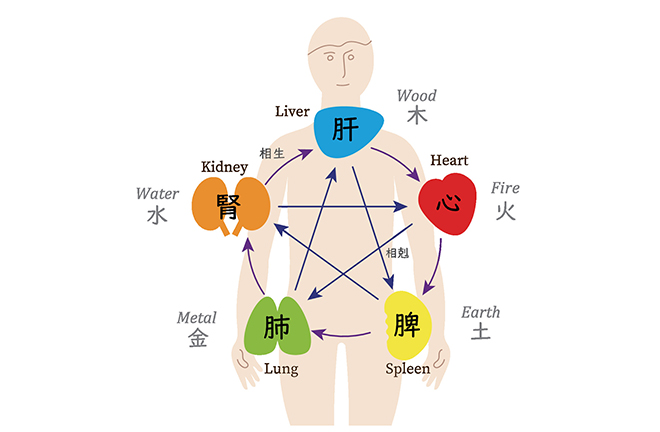Philosophy of medicine: philosophical inquiry toward real world

The traditional Chinese philosophical concept of wuxing ("Five Elements") has long been deeply integrated into Traditional Chinese Medicine. Photo: TUCHONG
Philosophy has long played a vital guiding role in the humanities and social sciences. In the 21st century, how can philosophical research better uncover its own significance and value, respond more effectively to societal needs, and achieve sustained innovation and development? This article takes philosophy of medicine—an emerging interdisciplinary field—as an example to examine how Chinese philosophical inquiry in the new era can be grounded in domestic realities and closely aligned with contemporary social practice, thereby contributing to the intellectual foundations of China’s modernization.
Philosophy should step outside the ‘armchair’
Academic philosophy typically encompasses four dimensions. The first is historical, focusing on philosophical theories or ideas from the past—that is, the history of philosophy or intellectual history. The second is textual, centered on the original writings of philosophers, including their translations and annotations. The third is biographical, concerned with the lives and writings of individual philosophers. The fourth is problem-oriented, namely philosophical inquiry driven by specific issues. A common feature of these four dimensions is their tendency to maintain distance between philosophy and the concrete complexities of real life. This often results in a textualized mode of inquiry: philosophy becomes either a branch of intellectual history or is reduced to a self-referential “game of concepts.” To address this, this article proposes a fifth dimension: philosophy oriented toward the real world.
“Philosophy oriented toward the real world” entails breaking free from the limitations of “armchair philosophy”—not narrowing philosophical inquiry into a purely theoretical pursuit, but stepping out of the ivory tower and into the living world to seek motivation, inspiration, and practical relevance. This approach embodies the spirit of the “engaged humanities” movement that has gained momentum since the 1990s, which calls on scholars to bring their academic knowledge into public life and actively participate in social affairs.
Connecting philosophy to frontline healthcare practice
Medicine is both a science and a “human science”; good medicine must be imbued with humanistic care. As a key subfield of the medical humanities, the philosophy of medicine is concerned not only with the scientific and technological aspects of medicine, but more importantly, with real, living human beings in clinical settings. It has several distinctive characteristics.
First, as an emerging interdisciplinary field, the philosophy of medicine is marked by considerable expansiveness and catalytic potential. Since health and illness are relevant to everyone, philosophical inquiry into these topics is rooted in a concern for human life and the human condition, essentially aligning with the ultimate concern of the humanities. In terms of explanatory power and intellectual refinement, all research on “the human” fundamentally relies on the abstract logic and theoretical resources provided by philosophy.
Second, while engaging with historical, textual, and biographical perspectives remains important, philosophy of medicine must also be grounded in concrete problems. Issues related to healthcare and public health are never purely scientific; they are shaped by a complex interplay of political, economic, social, and cultural forces. Research in this field cannot rest on assumptions or be pursued in isolation—it must locate its questions and answers in the real world. A crucial lesson the author has drawn from clinical research is that firsthand experience with birth, aging, illness, and death in the frontlines of healthcare may offer the very “sense of reality” that theoretical researchers most need yet often lack.
Third, the philosophy of medicine should examine the present while also envisioning the future. The essence of philosophy lies not in textual skills, abstract concepts, or specialized terminology, but in interpreting and transforming the world. A common flaw in academic philosophy is its excessive emphasis on texts: discussions are often preoccupied with what the classics say or what ancient thinkers thought, devoting much effort to what people “should” do while overlooking what people might do, what they are doing, and why they do it. Research of this kind tends to have limited impact and little staying power.
Issues concerning “the human” in the field of healthcare span three dimensions: the individual dimension, that is, clinical medicine and nursing; the community and social dimension, namely public health; and the civilizational dimension, pertaining to global health from the perspective of a community with a shared future for humankind. Each of these dimensions raises numerous pressing and practically significant issues that call for exploration within the framework of the philosophy of medicine. For philosophy to continue evolving in the new era, it must rise from the armchair and turn toward the real world.
Pan Dawei is a professor from the Department of Philosophy at Sun Yat-sen University.
Edited by WANG YOURAN

 PRINT
PRINT CLOSE
CLOSE